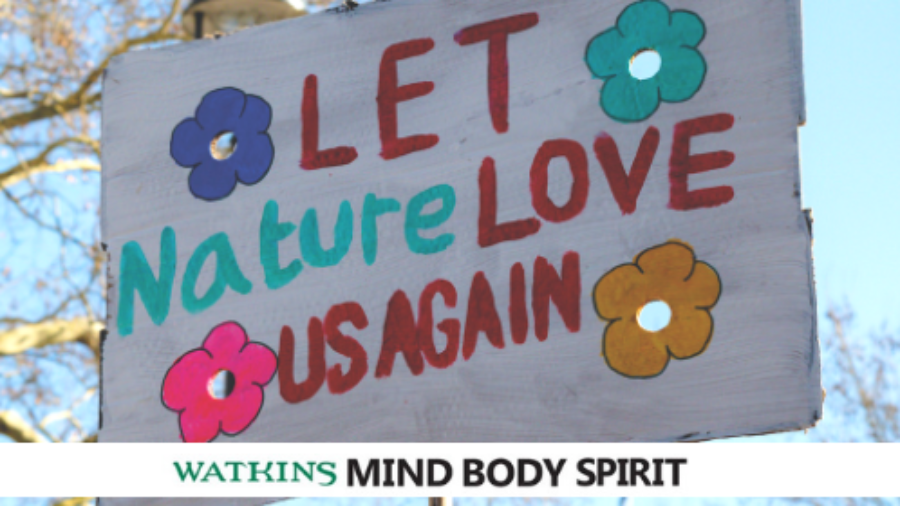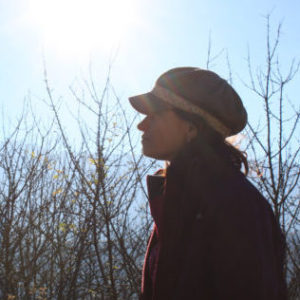by Dr Justine Afra Huxley
There is a revolution going on. The way the younger generation are engaging with spirituality and faith reflects a profound evolution in the way we relate to the sacred – and is showing us the future. As the author and new economic thinker Charles Eisenstein said, ‘Young people are standing much more firmly in the story of interbeing.’ They are making a worldview of interconnectedness into a lived reality.
As the experience and understanding of interconnectedness becomes more established in human consciousness, we come to crossroads. Our world is falling apart and calls for us to rebuild our civilisation and way of life with that principle at its heart. It is my conviction that none of us – young or old – can live an authentic spiritual life except in full relationship with that knowledge. To engage with the world is to engage with crisis. It is painful and demanding. But unless we do just that, our spirituality is just words.
After five years working with young adults in the fields of activism and ecology, and more recently, two years interviewing young adults about their spirituality, it seems clear to me that Generation Y are the ones leading the way in this global undertaking. They are showing us what it means to walk the talk. They are integrating spirituality with action – not just in a surface way, but as a means to systemic change. For many young adults, it is not so much a question of ‘putting faith into action’ – but more that action from a place of interbeing is the journey. I’ve been educated, inspired and humbled by the younger generation through this work. There is a powerful regenerative quality moving through these young activists who are the spiritual leaders of our future – a quality that feels like Divine grace.
Earth Calling
While many remain in denial, young people are facing up to the obvious: that nothing is more important than our relationship with Earth. If any of us are to survive the environmental holocaust looming on our collective horizon and establish a more sustainable way of life in the longer term, that surely has to be our biggest priority. Although regularly battling with grief, burnout, hopelessness and the magnitude of the task ahead, young people are much more likely than their elders to care about what we so reductively call ‘the environment’. Many are also turning to nature as their primary source of connection with a sense of the sacred. Science is also confirming the power of the natural world to change our inner state. Perhaps the younger generation are laying down the foundations for a new global Earth-based spirituality – informed by the ancient wisdom teachings of different faiths but not limited to them. As Vandana Shiva says, to turn this around ‘we have to create the cultural mechanisms to protect life. And that cultural mechanism is the category of the sacred.’ We certainly need this urgently. If humanity can return once again to seeing nature as worthy of reverence, then perhaps the destruction can end.
Young people are also putting themselves on the line out of love of our Earth. Activists like Greta Thunberg and Xiutezcatl Martinez are changing our world – they are bringing a revolutionary spirit to the task of breaking up the old story, making space for the new. They are speaking truth to power. They are fed up with waiting for their elders to act. They are listening to Mother Earth, taking the leadership into their own hands and acting from a place of deep spiritual integrity.
Earth Can Unite Us
Earth also has the potential to unite us. Love of our beautiful Earth can be a powerful reconciling force across different religions, spiritualities and cultures. Spiritual communities and faith institutions that make the commitment to properly link their core teachings with actively protecting the environment also seem to have an aliveness about them that speaks to the younger generation. That commitment also makes it easier to collaborate across traditions, since the urgency of the task overrides other differences. Re-establishing the centrality of our relationship with the natural world can be a powerful force for peace – building much-needed bridges across the religious, spiritual and secular worlds.
The Role of Faith in Resilience
The young people I interviewed seemed more outspoken and realistic than many of their elders about the future we may be facing. Though some struggle with regular bouts of hopelessness, overall they share tremendous determination and moral courage. I was often left wondering how well we are preparing ourselves for the social, ecological and economic upheavals that will clearly be intensifying dramatically over the next decade. We will need great resilience – and our spirituality and our resilience are closely connected. However, religious and spiritual leaders who are proactively preparing their communities are not the majority. Surely leaders of all kinds need to be fearless in facing what lies ahead? We need inspiration to make meaning from the mess. We need stories and myths, teachings, practices and prayers powerful enough to sustain us through these times. We also need to be reminded of the spiritual opportunities hiding within the crisis – the potential for great need to help us put aside selfish concerns, to grow in maturity and discipline – and to live from our deepest values, knowing love is all that matters.
Part of Something Bigger
All the young adults in this collection share a sense of being in service to something beyond themselves – their life is a fragment of a much bigger story of change. This is a profoundly important understanding. Being part of something bigger than the individual self gives infinite meaning and plugs us into a source of limitless nourishment. It gives solid ground to stand on in a landscape of shifting sands and uncertainty. Identified with ourselves, in times such as this, we might easily drown in despair, loneliness or superficiality. To be identified with a planetary or cosmic whole – a beautiful unity for which we are prepared to fully engage, whatever sacrifices that takes – this makes possible the impossible. It gives energy and courage, turns us into spiritual warriors and adventurers, enables us to ‘walk through the valley of the shadow of death’ and hold fast in the face of turmoil.
Through the words of these young people, may we all be called to live the ways of love in the world, as the world, not just in our private prayers and meditations, but also in making whatever contribution we can to global change. May we know ourselves to belong, to be deeply connected with each other and with Earth in ways we are only just beginning to understand. May we see how desperately every one of us is needed. May we taste what we can achieve – together, old and young – when we recognise the greater reality of which we are a part.
Find out more:
Justine Afra Huxley is a peace-builder, sacred activist and the CEO of St Ethelburga’s Centre for Reconciliation and Peace, a unique interfaith and inter-spiritual centre in the heart of the City of London. Her work includes advancing the next generation of leaders and peace-makers, and building resilience for an increasingly dystopian world. Her first book, Generation Y, Spirituality and Social Change, is a collection of interviews with millennials living a radical new vision of faith and action. Justine has a Ph.D in psychology and belongs to a Sufi tradition.




